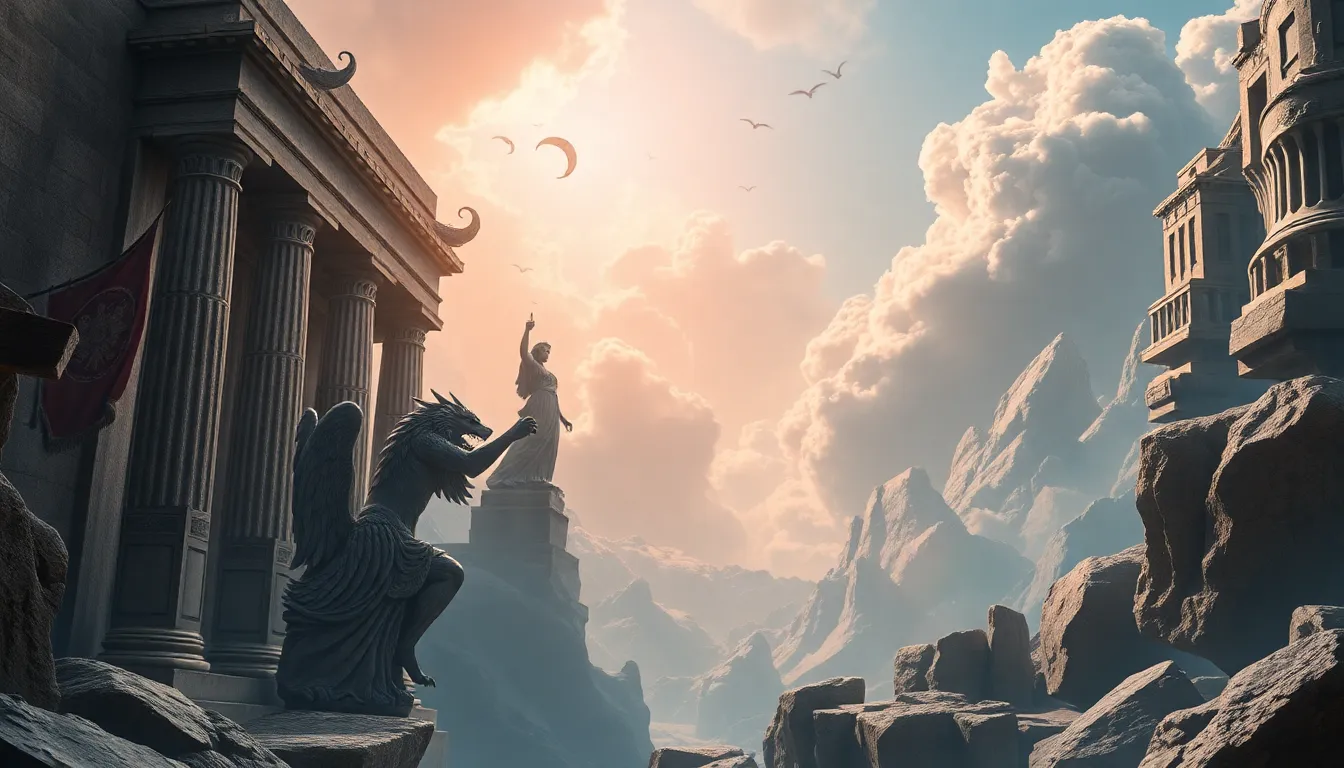Understanding the Concept of Hubris in Greek Mythology
I. Introduction to Hubris
Hubris, derived from the Greek word ‘hybris’, refers to excessive pride, arrogance, or self-confidence that often leads to one’s downfall. In Greek mythology, hubris is a pivotal theme, serving as a cautionary tale about the dangers of overstepping boundaries set by the gods. This article explores the concept of hubris, its historical context, key myths illustrating its consequences, and its relevance in contemporary society.
II. Historical Context of Hubris in Ancient Greece
In ancient Greece, hubris was not just a personal flaw; it was seen as a significant moral failing that could provoke the wrath of the gods. The cultural significance of pride and arrogance was deeply embedded in Greek society.
- Cultural significance of pride and arrogance: The Greeks believed that excessive pride could lead individuals to believe they were above the divine order.
- The role of hubris in Greek society: Hubris was often associated with a disregard for the gods and the natural order, leading to social and personal consequences.
- Philosophical perspectives on hubris: Philosophers such as Socrates and Aristotle discussed hubris in the context of ethics, warning against the dangers of excessive pride.
III. Key Myths Illustrating Hubris
Numerous myths illustrate the concept of hubris and its consequences. Here are three significant examples:
A. The story of Icarus and Daedalus
In the story of Icarus and Daedalus, Daedalus, a master craftsman, constructs wings made of feathers and wax for himself and his son, Icarus, to escape from Crete.
- Overview of the myth: Despite his father’s warnings, Icarus flies too close to the sun, melting the wax and falling into the sea.
- Analysis of Icarus’s hubris: Icarus’s desire to fly higher and be like the gods exemplifies the dangers of hubris, leading to his tragic demise.
B. The tale of Arachne and Athena
Arachne, a talented mortal weaver, boasts that her skills surpass those of the goddess Athena.
- Summary of the narrative: Athena challenges Arachne to a weaving contest, and although Arachne wins, she displays arrogance by mocking the gods.
- Consequences of Arachne’s arrogance: Enraged, Athena transforms Arachne into a spider, condemning her to weave for eternity.
C. The myth of Oedipus
Oedipus, the king of Thebes, seeks to rid his city of a plague, only to discover his own tragic fate.
- Overview of Oedipus’s journey: His quest for truth leads him to uncover that he has unwittingly fulfilled a prophecy, killing his father and marrying his mother.
- Hubris leading to tragic downfall: Oedipus’s determination and pride blind him to the warnings, resulting in his tragic end.
IV. Characteristics of Hubris in Greek Heroes
Hubris is often a defining trait of many Greek heroes, showcasing the thin line between greatness and arrogance.
- Common traits of hubristic characters:
- Overconfidence in their abilities
- Disregard for divine authority
- Isolation from peers due to arrogance
- The interplay between hubris and fate: Many heroes’ pride leads them to defy fate, resulting in tragic consequences.
- Examples of heroes exhibiting hubris:
- Achilles, who refuses to yield
- Agamemnon, whose pride leads to conflict
- Heracles, whose feats often come with tragic flaws
V. Consequences of Hubris in Greek Myths
The consequences of hubris are often severe, reflecting the moral lessons embedded in Greek mythology.
- The concept of nemesis and divine retribution: Hubris frequently invites nemesis, the retributive justice of the gods.
- Moral lessons derived from hubris: Myths warn against overstepping one’s bounds and remind individuals of their place in the cosmic order.
- The cyclical nature of pride and punishment: Characters who exhibit hubris often face a cycle of rise and fall, teaching the inevitability of retribution.
VI. Hubris in Greek Tragedy
Greek tragedies often feature hubris as a central theme, exploring the depths of human emotion and the consequences of pride.
- Overview of Greek tragedies featuring hubris: Many classic tragedies, such as Sophocles’ “Antigone” and “Oedipus Rex,” delve into themes of hubris.
- Analysis of key tragic figures: Characters like Creon and Oedipus embody hubris, leading to their tragic fates.
- The impact of hubris on tragic narratives: The exploration of hubris adds complexity and depth to these stories, illustrating the human condition.
VII. The Relevance of Hubris Today
Despite being an ancient concept, hubris remains relevant in the modern world.
- Modern interpretations and adaptations of hubris: Contemporary literature and films often draw on the theme of hubris to illustrate the downfall of characters.
- Hubris in contemporary literature and media: Works such as “The Great Gatsby” and “Breaking Bad” showcase characters whose pride leads to their demise.
- Lessons from hubris for modern society: The cautionary tales of hubris serve as reminders of the importance of humility and the dangers of overconfidence.
VIII. Conclusion
In conclusion, hubris is a significant theme in Greek mythology that illustrates the perils of excessive pride and arrogance. Through various myths, we see how hubris leads to tragic consequences, serving as a timeless reminder of the importance of humility. The enduring nature of hubris continues to resonate in modern interpretations, encouraging further exploration of these ancient tales and their moral lessons.




